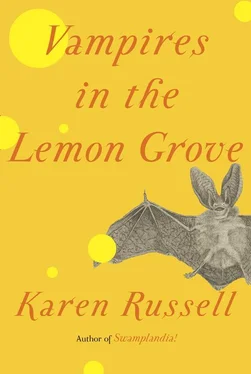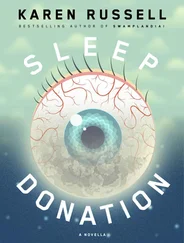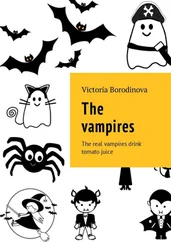It takes thirteen to fourteen hours for the Machine to empty a kaiko-joko of her thread. The relief of being rid of it is indescribable.
These seashore girls know next to nothing about silkworm cultivation. In the mountains of Chichibu, Chiyo tells them, everyone in her village was involved. Seventy families worked together in a web: planting and watering the mulberry trees, raising the kaiko eggs to pupa, feeding the silkworm caterpillars. The art of silk production was very, very inefficient, I tell the sisters. Slow and costly. Until us.
I try to weed the pride from my voice, but it’s difficult. In spite of everything, I can’t help but admire the quantity of silk that we kaiko-joko can produce in a single day. The Agent boasts that he has made us the most productive machines in the empire, surpassing even those steel zithers and cast-iron belchers at Tomioka Model Mill.
Eliminated: mechanical famine. Supply problems caused by the cocoons’ tiny size and irregular quality.
Eliminated: waste silk.
Eliminated: the cultivation of the kaiko . The harvesting of their eggs. The laborious collection and separation of the silk cocoons. We silkworm-girls combine all these processes in the single factory of our bodies. Ceaselessly, even while we dream, we are generating thread. Every droplet of our energy, every moment of our time flows into the silk.
I guide the sisters to the first of the three workbenches. “Here are the basins,” I say, “steam heated, quite modern, eh, where we boil the water.”
I plunge my left hand under the boiling water for as long as I can bear it. Soon the skin of my fingertips softens and bursts, and fine waggling fibers rise from them. Green thread lifts right out of my veins. With my right hand I pluck up the thread from my left fingertips and wrist.
“See? Easy.”
A single strand is too fine to reel. So you have to draw several out, wind six or eight around your finger, rub them together, to get the right denier; when they are thick enough, you feed them to the Machine.
Dai is drawing red thread onto her reeler, watching me approvingly.
“Are we monsters now?” Tooka wants to know.
I give Dai a helpless look; that’s a question I won’t answer.
Dai considers.
In the end she tells the new reelers about the juhyou , the “snow monsters,” snow-and-ice-covered trees in Zao Onsen, her home. “The snow monsters”—Dai smiles, brushing her white whiskers—“are very beautiful. Their disguises make them beautiful. But they are still trees, you see, under all that frost.”

While the sisters drink in this news, I steer them to the Machine.
The Machine looks like a great steel-and-wood beast with a dozen rotating eyes and steaming mouths — it’s twenty meters long and takes up nearly half the room. The central reeler is a huge and ever-spinning O , capped with rows of flashing metal teeth. Pulleys swing our damp thread left to right across it, refining it into finished silk. Tooka shivers and says it looks as if the Machine is smiling at us. Kaiko-joko sit at the workbenches that face the giant wheel, pulling glowing threads from their own fingers, stretching threads across their reeling frames like zither strings. A stinging music.
No tebiki cranks to turn, I show them. Steam power has freed both our hands.
“ ‘Freed,’ I suppose, isn’t quite the right word, is it?” says Iku drily. Lotus-colored thread is flooding out of her left palm and reeling around her dowel. With her right hand she adjusts the outflow.
Here is the final miracle, I say: our silk comes out of us in colors. There is no longer any need to dye it. There is no other silk like it on the world market, boasts the Agent. If you look at it from the right angle, a pollen seems to rise up and swirl into your eyes. Words can’t exaggerate the joy of this effect.
Nobody has ever guessed her own color correctly — Hoshi predicted hers would be peach and it was blue; Nishi thought pink, got hazel. I would have bet my entire five-yen advance that mine would be light gray, like my cat’s fur. But then I woke and pushed the swollen webbing of my thumb and a sprig of green came out. On my day zero, in the middle of my terror, I was surprised into a laugh: here was a translucent green I swore I’d never seen before anywhere in nature, and yet I knew it as my own on sight.
“It’s as if the surface is charged with our aura,” says Hoshi, counting syllables on her knuckles for her next haiku.
About this I don’t tease her. I’m no poet, but I’d swear to the silks’ strange glow. The sisters seem to agree with me; one looks like she’s about to faint.
“Courage, sisters!” sings Hoshi. Hoshi is our haiku laureate. She came from a school for young noblewomen and pretends to have read every book in the world. We all agree that she is generally insufferable.
“Our silks are sold in Paris and America — they are worn by Emperor Meiji himself. The Agent tells me we are the treasures of the realm.” Hoshi’s white whiskers extend nearly to her ears now. Hoshi’s optimism is indefatigable.
“That girl was hairy when she got here,” I whisper to the sisters, “if you want to know the truth.”

The old blind woman comes again, takes our silks, pushes the leaves in with a stick, and we fall upon them. If you think we kaiko-joko leave even one trampled stem behind, you underestimate the deep, death-thwarting taste of the mulberry. Vital green, as if sunlight is zipping up your spinal column.
In other factories, we’ve heard, there are foremen and managers and whistles to announce and regulate the breaks. Here the clocks and whistles are in our bodies. The thread itself is our boss. There is a fifteen-minute period between the mulberry orgy—“call it the evening meal , please, don’t be disgusting,” Dai pleads, her saliva still gleaming on the floor — and the regeneration of the thread. During this period, we sit in a circle in the center of the room, an equal distance from our bedding and the Machine. Stubbornly we reel backward: Takayama town. Oyaka village. Toku. Kiyo. Nara. Fudai. Sho. Radishes and pickles. Laurel and camphor smells of Shikoku. Father. Mother. Mount Fuji. The Inland Sea.

All Japan is undergoing a transformation — we kaiko-joko are not alone in that respect. I watched my grandfather become a sharecropper on his own property. A dependent. He was a young man when the Black Ships came to Edo. He grew foxtail millet and red buckwheat. Half his crop he paid in rent; then two-thirds; finally, after two bad harvests, he owed his entire yield. That year, our capital moved in a ceremonial, and real, procession from Kyoto to Edo, now Tokyo, the world shedding names under the carriage wheels, and the teenage emperor in his palanquin traveling over the mountains like an imperial worm.
In the first decade of the Mejii government, my grandfather was forced into bankruptcy by the land tax. In 1873, he joined the farmer’s revolt in Chūbu. Along with hundreds of others of the newly bankrupted and dispossessed from Chūbu, Gifa, Aichi, he set fire to the creditor’s offices where his debts were recorded. After the rebellion failed, he hanged himself in our barn. The gesture was meaningless. The debt still existed, of course.
My father inherited the debts of his father.
There was no dowry for me.
In my twenty-third year, my mother died, and my father turned white, lay flat. Death seeded in him and began to grow tall, like grain, and my brothers carried Father to the Inoba shrine for the mountain cure.
Читать дальше













